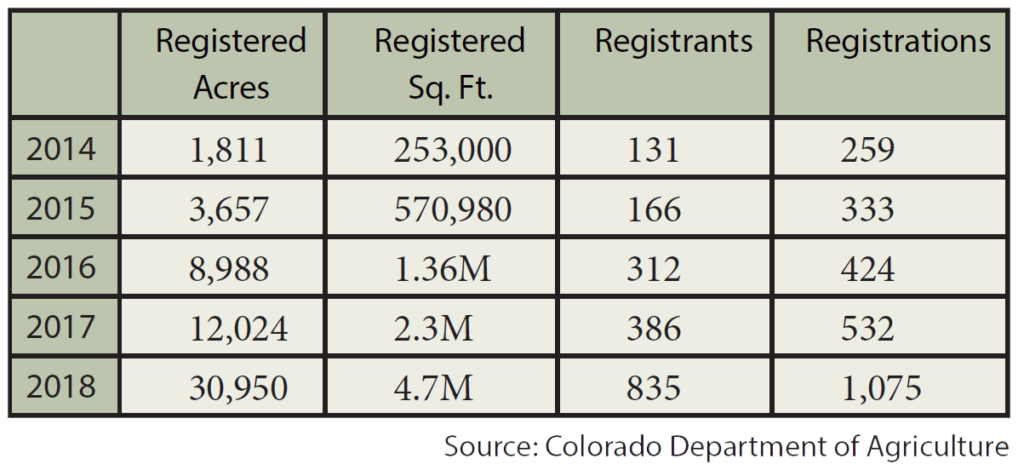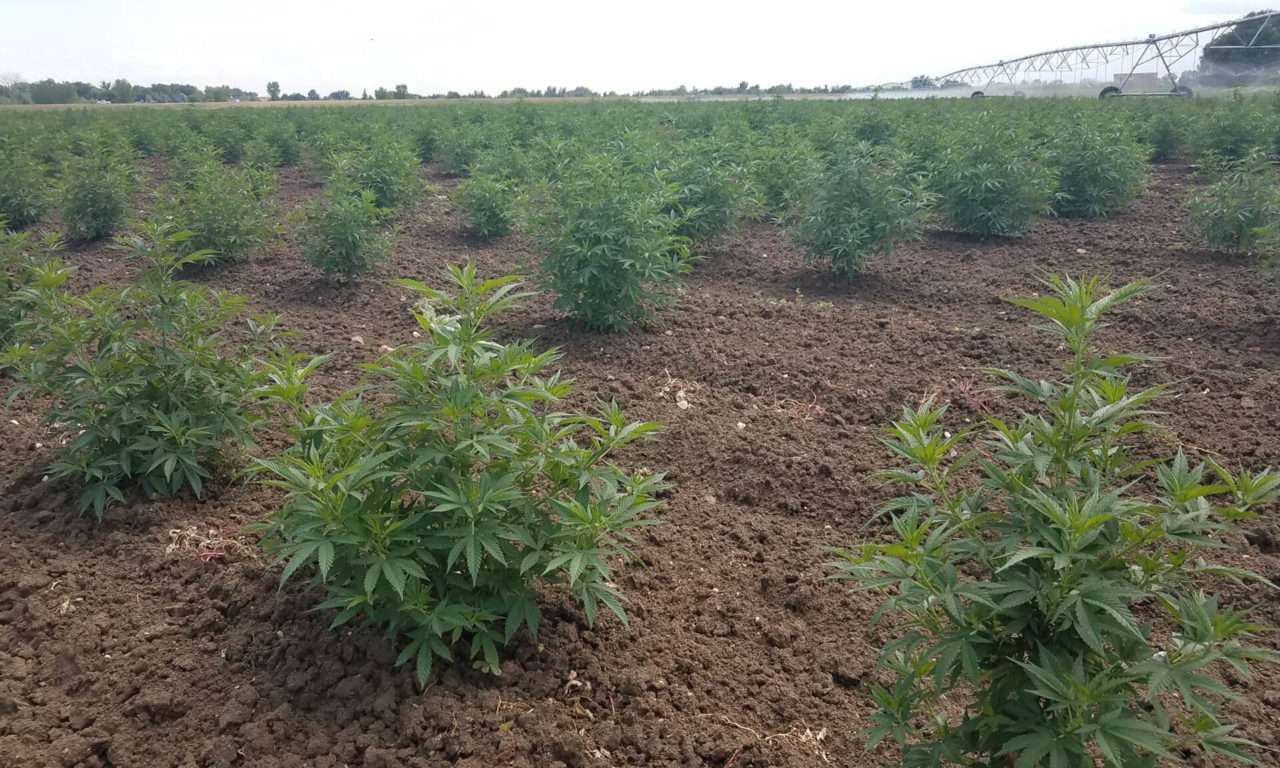Industrial hemp is popping up on Boulder County Open Parks & Space agricultural properties. What exactly is hemp, and why now?
The federal farm bill definition of “industrial hemp” means a plant of the genus Cannabis and any part of the plant, whether growing or not, containing a delta-9 tetrahydrocannabinol (THC) concentration of no more than three-tenths of one percent (0.3 percent) on a dry weight basis.
Industrial hemp, also called hemp, is the same species as marijuana (Cannabis sativa) but has lower concentrations of THC and higher concentrations of cannabidiol or CBD, which decreases the psychoactive effects. Hemp is grown specifically for the industrial uses of its derived products.
Plant of Many Uses
Different end uses are typically produced with different genetic strains bred to deliver specific outcomes. Hemp genetics are designed to produce or optimize end uses like CBD vs. fiber. The fiber, seeds, and oil can be made into hundreds of products.
The stalks produce an outer ring of bast fibers and an inner ring of hurd fibers that are made into paper, textiles, fabrics, rope, canvas, carpets, twine, cord, and building products, among other things.
The leaves, flowers, and seeds can be processed into CBD for food products, oils, gels, tinctures, capsules, salves, fuels, paints, and lubricants.
Cultivation
Hemp cultivation techniques vary based on what plant parts are going to be harvested. Hemp is an annual broadleaf that grows quickly. In Boulder County, farmers grow hemp primarily for CBD production. Hemp is planted from seed or transplanted into the field. Some producers choose to plant into black plastic for weed barrier, others plant directly into the soil with no weed barrier. Irrigation techniques vary as do seed sources, planting spacing, planting density, weeding methods (mechanical or manual), and harvest methods (again, mechanical or manual).
Another Kind of Gold Rush
The hemp industry in Colorado has been described as “The Wild West” or a modern day “Gold Rush.” Anyone growing hemp or looking to enter the industry is encouraged to very carefully vet all business relationships. More information can be found in the press release from Colorado State University Industrial Hemp Production: A Risk Assessment.
Hemp Through History
The legal history of hemp is long, complicated, and surprisingly difficult to uncover. For thousands of years people cultivated hemp and used the plant for many purposes.
Some highlights:
- 1937 – The Marijuana Tax Act strictly regulated and levied taxes on the cultivation and sale of all cannabis varieties, including hemp.
- 1940s – The United States Department of Agriculture’s “Hemp for Victory” campaign encouraged farmers to grow millions of acres of hemp for ropes, thread, parachutes, and other products needed by the military.
- 1970 – The United States Congress passed the Controlled Substances Act by placing a comprehensive drug policy under federal control. This included laws related to the manufacturing, possession, sale, import, and distribution of certain substances including hemp and marijuana.
- 2012 – Colorado ballot initiative Amendment 64 established the legalized recreational use of marijuana and marijuana-infused products in the state of Colorado. The ballot initiative also required the state legislature to permit the cultivation, processing, and sale of industrial hemp. However, federal law still defined marijuana and hemp as illegal drugs.
- 2014 – The 2014 Farm Bill allowed institutions of higher education and state departments of agriculture to grow hemp under a pilot program.
- 2018 – President Trump signed the Farm Bill which legalized hemp using the definition above. The Farm Bill requires each state to submit a management plan to the USDA outlining how various aspects of hemp cultivation and processing will be managed within their jurisdiction. This process is ongoing in Colorado. Learn more about the CHAMP Initiative.

As of July 15, 2019, there were 73 active industrial hemp registrations in Boulder County. There are at least six county-owned open space parcels where hemp is or will be planted for the 2019 cropping season.
Future
Cultivating industrial hemp in Colorado requires registration through the Colorado Department of Agriculture (CDA). The 2018 Farm Bill mandates that states must maintain information on lands where hemp is grown. The CDA has no jurisdiction over industrial hemp processing, sales, or products. Boulder County Agricultural Resources is monitoring hemp production on open space. We are keeping a close eye on the economic factors and the agronomic considerations. What will the future hold? Stay tuned. We will find out together.


